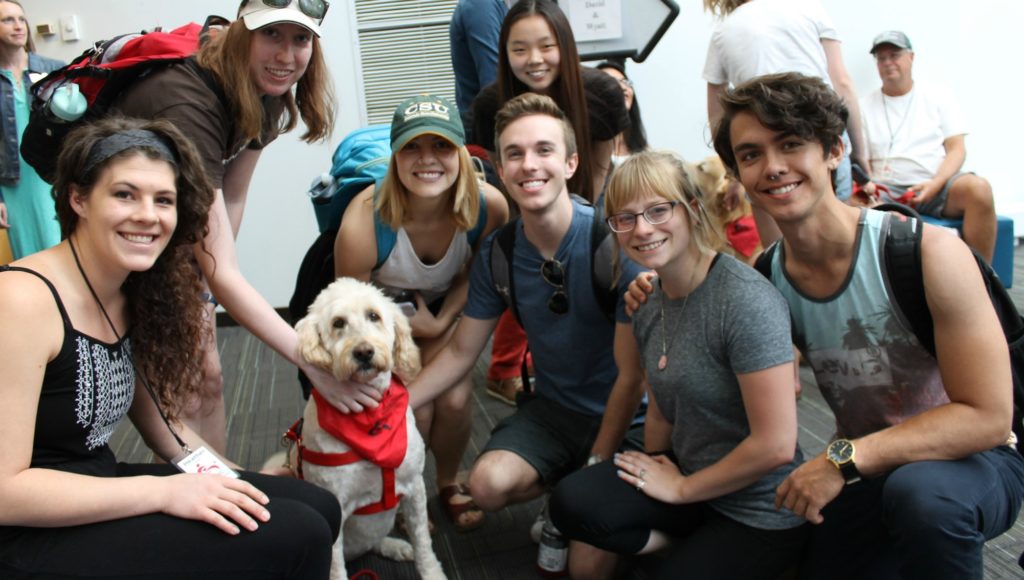
For nearly 25 years, the Human-Animal Bond in Colorado (HABIC) program in the Colorado State University School of Social Work has been providing animal-assisted therapy to those in need. Now, a gift of more than $1.6 million from the Avenir Foundation will grow the research and training arms of the program.
“Human history is full of compelling stories about the positive impact of interaction with animals and the therapeutic benefits of the human-animal bond,” said Audrey Shillington, director of the School of Social Work. “HABIC has done a great job of providing services in Colorado communities. This gift will allow us to further study the effectiveness of animal-assisted therapy while adding additional opportunities to train students in this field.”
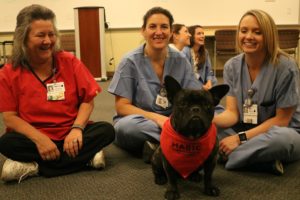 Gift to enhance staffing
Gift to enhance staffing
The gift will fund a full-time director of the program responsible for fundraising and community outreach, as well as further enhance staffing by funding a faculty position, a post-doctoral fellow and a graduate research associate dedicated to the program. The gift will also support the development of a Graduate Certificate in Human-Animal Interaction.
“We are so thankful to the Avenir Foundation for their dedication to the human-animal bond and commitment of funding to further inform our understanding of therapeutic interactions,” said Jeff McCubbin, dean of the College of Health and Human Sciences. “This gift affirms that HABIC and similar programs are life-changing for many people, and the donors’ investment will yield returns in improved quality of life.”
Active in many different settings
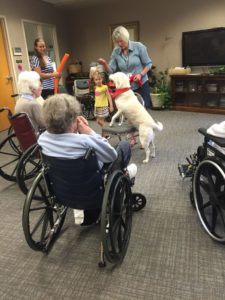 HABIC currently has more than 150 volunteer human-animal teams who serve hundreds of people weekly at over 40 schools and nonprofits in Colorado.
HABIC currently has more than 150 volunteer human-animal teams who serve hundreds of people weekly at over 40 schools and nonprofits in Colorado.
The volunteer HABIC human-animal teams, made up primarily of dogs (and a couple of cats) and their owners, are HABIC-certified in animal-assisted therapy and work with professional therapists on a range of issues affecting people in many different settings. For example, the teams visit schools, hospitals, respite care facilities, youth correctional facilities and nursing homes working on treatment protocols for educational success, mental health, behavioral health and elder-care issues.
“This very generous gift brings exciting opportunities for us to advance the field of human-animal interaction for students and researchers in ways that will directly benefit our many diverse populations,” said Cindy Carrington, member of the HABIC Advisory Committee.
More research needed
Building on the success of established community outreach programs such as HABIC that have shown the positive impact of animal-assisted therapy anecdotally, the gift will support much-needed research in the field. The gift will provide seed money for 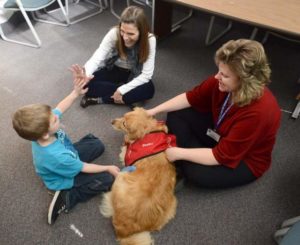 interdisciplinary teams to develop early stage research projects focused on the therapeutic impacts of the human-animal bond. Armed with data from smaller projects, the teams will aim to be competitive for large external grants.
interdisciplinary teams to develop early stage research projects focused on the therapeutic impacts of the human-animal bond. Armed with data from smaller projects, the teams will aim to be competitive for large external grants.
Certificate program
A new Graduate Certificate in Human-Animal Interaction focused on theory and animal-assisted therapies and other activities will be developed in the School of Social Work in collaboration with the new HABIC director and other faculty across campus. This is an educational track requested by students across the country in multiple majors.
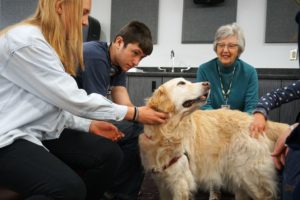 The certificate program will produce trained professionals able to perform therapies throughout the country with a variety of animals. Offering the certificate online will allow the reach of this educational and training opportunity to extend beyond CSU.
The certificate program will produce trained professionals able to perform therapies throughout the country with a variety of animals. Offering the certificate online will allow the reach of this educational and training opportunity to extend beyond CSU.
In addition to funding research studies, the director position and the new graduate certificate, generous support from the Avenir Foundation will furnish an office suite for HABIC staff, hire a part-time animal trainer, and help pay for dog training supplies and equipment.
For more information about HABIC, go to www.habic.chhs.colostate.edu.
To support HABIC, go to advancing.colostate.edu/habic or contact Victoria Keller at Victoria.Keller@colostate.edu.
The HABIC program is part of the School of Social Work in CSU’s College of Health and Human Sciences.